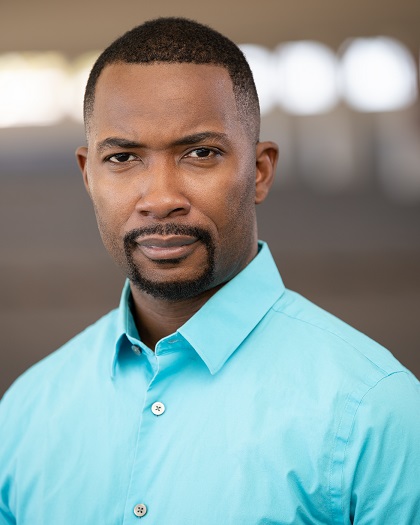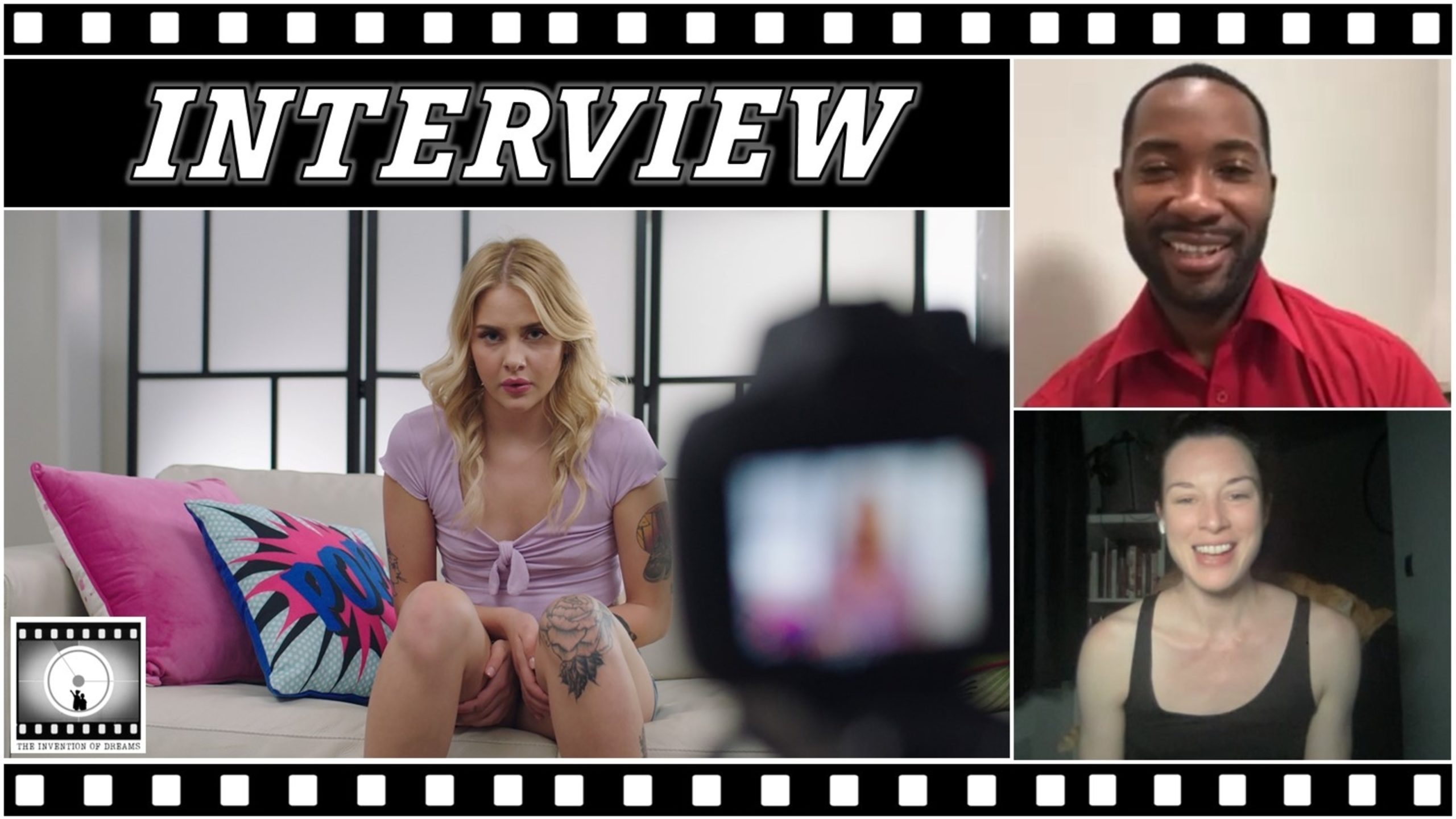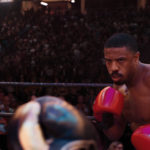
Jessica Stoya and Jason (Tee Reel) Toler sat down for a wide-ranging conversation inspired by Toler’s role in the film Pleasure. Both have backgrounds in adult entertainment and are able to bring that unique perspective to delve into how Pleasure depicts the industry. It’s a fascinating dialogue that gives unique insight not just on the film’s production but on broader depictions of sex work in pop culture.
Video:
Transcript:
The following has been lightly edited for clarity and conciseness.

Jason Toler’s Background
Hello. I am Jessica Stoya. I am here with Jason Toler (Tee Reel), one of the stars of Pleasure, which is a very interesting film about a very wild industry. Tee, thank you so much for joining me and taking the time.
Toler: Absolutely. Absolutely.
I first met you at some kind of porn event and you were an agent and a performer at that time.
Toler: Correct.
And you were also working in independent films.
Toler: Yes. The long and short of it is my degree is in the business of film. I actually went to film school and got my degree there. I worked on Barbershop, Save the Last Dance, Spider-Man 2. My working name is Jason Toler. From there, I was directing music videos and ended up getting an office space which was the old Playboy building. I ended up booking a lot of Playmates for various rap videos. I was one of the go to directors for getting girls who were hot at the time into rap videos. From there, I ended up moving from the sort of Playboy into the nude modeling world into more adult modeling based stuff. So that was how I got pulled into it. I’ve always worked on both sides of the fence. I’ve always had a hand or investment or acting in some capacity in mainstream films, but I’ve also had a performance title, an agency, and directed in the adult industry as well.
The Accuracy of Pleasure from an Industry Perspective
So I feel like you are very uniquely positioned to comment on this film, which is about the adult industry and shows a whole bunch of interactions that a young female performer might have with a bunch of different kinds of people as they’re working in porn. How accurate do you think it is?
Toler: I think part of the issue with this film is that it’s a film, it’s a movie. It’s not an actual documentary. It’s a completely accurate portrayal of the industry. It’s one person’s journey. I think that there are definitely people who have worked in this industry who have had experiences similar so I think if you look at this film for what it is – a film! – telling the story of a particular person’s journey, it’s very accurate. I think where it becomes a gray area and the lines kind of get crossed, including the people who are marketing the film, are pushing it as kind of an expose of the industry, or that the people in the film who are acting are basically just playing characters based on themselves. If you work in the industry, you will definitely recognize that some of the characters are based off of people in the industry. It’s those kinds of gray lines and gray areas that have been kind of problematic in the marketing. But the actors who worked on the film, both who are in the adult industry and who are not in the adult industry, did a great job.
I thought the acting and the cinematography was incredible. I worked as a female performer myself for several years and I found the shots from the female talent perspective to be very…
Toler: Remembering back to your experience of it?
It’s so evocative. It does, and I understand that even in pornography but also in the rest of the film industry the on camera talent doesn’t necessarily get asked about the marketing. It seems like it would make production impossible to say to talent at the beginning “we want you on board with this project that we’re going to market this specific way.”
Toler: Exactly. And I think that’s what the issue is with the adult industry’s, for lack of a better word, problem with the director. A lot of the interviews, and a lot of the way it was positioned, is that these are people in the industry being themselves. That’s not the case. Specifically, for those of the actors who portray characters who weren’t in the best light so to speak. That can be harmful and very disrespectful. If you’re playing a villain in a movie, and you’re doing an amazing job of playing that villain, to have someone say that’s just “so and so” being “so and so” a lot can be taken aback from that.
Is it like an extreme version of the way that porn fans sometimes expect porn performers to be who they are in their porn scenes?
Toler: To an extent. It definitely holds a lens to it. If you see someone dressed up as Santa Claus, you’re going to be put in the mind frame of Christmas and toys and Jolly Old St. Nick, but if you realize that Santa Claus is not real. He’s a character. That person is wearing a fake beard and a red outfit. When it comes to people in the adult industry, the only time you see those people is in a sexual entertainment vision, it’s easy, especially from the perspective of the mainstream industry, to put those people in a specific box and not realize that there’s a person behind that performance, even if that performance is sexual.
The Writing and Production of Pleasure
You were involved in the writing of the film, correct?
Toler: A good friend of mine told me about the project. I spoke with [director Ninja Thyberg] about what she was trying to do. From our conversations, I understood she wanted to tell a story about a girl who gets in the industry and what her experiences are. She started like many directors I’ve encountered throughout my career pumping me for information and asking about my experiences trying to structure what their story should be. She spoke to me about acting based off my acting career. If you know me, or look into Jason Toler, I’ve worked on numerous films and TV shows. She spoke to me about two characters – Bear, who is a performer in the industry, and Michael, who is an agent. Obviously with my background, I’ve been an agent, but I’ve also been talent. The breakdown of both of those characters… I was able to see there wasn’t specifically a script at that time. She asked me to do some improv with the lead actress back and forth as both characters. I think she came to me about a month and a half later and said “would you be interested in playing the character of the male performer?” I said that if I was going to be involved with the project, I’d feel more comfortable playing the agent portion of it. I hadn’t seen a script and there was not a complete breakdown of what this character’s journey was going to be. I’ve worked in films and I’ve worked in Hollywood so I kind of know how things can go awry sometimes. Without having the full breakdown of the character in the script, playing what to my knowledge would be the only black male performer in the film, I had some reservations. I was pretty confident – I had been to Cannes before and other film festivals – and I was familiar with her work a little bit. She had a short she had done at Cannes a few years back. I had heard of her, and I was curious how the feature was going to be expanded and what she was going to do. So I had my reservations. We sat down and talked about and from there she offered me the role of Mike, the agent. Once I started to read into the script I realized that this was kind of a hyper-realized version of another agent in the industry, who is well known and not very well liked. My approach was to look at it from an actor’s perspective to try to show the balance of this character. We ended up shooting two or three different scenes that didn’t end up in the film that would’ve given a little more understanding of that character.
That was something that really struck me about the film – the balance that Ninja chose to strike. In my experience, I’m sitting here – neither of us are going to say it – but I’m pretty sure I know exactly which agent you were using as character influence. Each of those scenes, it was like “yea, I’ve experienced something like that” or know someone who has experienced something like that or heard a story that’s credible of someone experiencing something like that. But to have two scenes that show the joy of sexual exploration that can happen in the adult film industry, which is what the main character says she’s after in the very beginning, and then to have so many things where, even in a ten year career, you probably wouldn’t experience that many awful things and that few wonderful things. The ratio seems off.
Toler: And I think that’s the dichotomy of the film. It’s hard to say it, but my impression of watching the entire film becomes ‘hurt people hurt people.’ My impression of watching the film is a let down because yea everybody has bad days, but there are so many documentaries and exposes about the industry that puts everything in such a bad life – the people, the experience. It makes it seem like everyone is exploited or on drugs. You have a corporate, mainstream movie that is reaching so many people and has such a range as somebody who works in the industry you’re hoping there would be a different narrative. Compare a director like Ninja with a director like Sean Baker who has done films that are on the fringes of the industry or are about people who work in the industry, but don’t come off so exploitative or so negative in my opinion. We would hope to see more of those types of stories about people who work in the industry. Also as a filmmaker, I watch so many movies and I’m so browbeaten of the same old woe is me story of sex trafficking and drugs. It’s exhausting. There was never a complete script that we all got a chance to read through and do a rehearsal off of. All of us working on the film got pieces: this is the scene, here’s what it is, give us this. To see all those pieces put together was a bit disheartening. For a lot of people in the adult industry that worked on it as well, they were not aware that their segment of the film was also going to be about how difficult this person’s experience was, also going to be about how this person was wounded by this experience, also going to be about how negative these people have been towards her. It’s just disheartening.

The Choices the Production Team Made in Promoting the Movie
With your independent film perspective, how reasonable would it have been, let’s say hypothetically at some point you were all given a complete script for rehearsal, and some people read through it and said “this doesn’t sound like what I signed up for, I’m pulling out.” Is that considered unprofessional?
Toler: I think it’s pretty reasonable. I’ve worked on plenty of projects where I was playing a character I don’t feel comfortable with and I had to turn down roles or walk away from roles. I worked on a TV show recently where they wanted me to play a gay character and my approach was that they should probably hire a gay male for this character. I’ve had to play gangbangers, etcetera. It wouldn’t have been that difficult especially when so many people who work in the industry would have wanted the opportunity. If you haven’t seen the film, I don’t want to bash it to the point where you don’t want to watch it. If you enjoy films in some capacity, you should watch it and get your own take from it. For people who worked on the film though, I think not everybody involved was completely aware of what the complete narrative was going to be or how their character was going to be portrayed based on their performance nor the connection of [the filmmakers] saying this performance is [the performer] – that’s the problem.
It is a good film! And it’s also very problematic for the adult industry as a package. Being in both worlds, I’m very curious how you feel about being in the film. Are you proud? Are you frustrated? Is it a mixture?
Toler: It’s a mixture. As an actor, you want to be a part of projects. Full transparency, I’ve been working behind the scenes of mainstream for so long that I had lost my interest in acting. I just got back into acting professionally in the last 6 or 7 years. In that timeframe, I’ve played police officers, single dads, the guy who works at the club. I’ve had an array of different characters I’ve been able to portray. For the Mike character I portray in this movie, because I’ve worked in this industry and I’ve been around the agent they were basing my character off of, I was able to embrace my skill set as an actor and embrace the experience that I’ve had to emphasize that character. I’m proud of my performance. I love the fact that people are open to my performance and have sung my praises as an actor. It’s unfortunate when whoever, be it the director, the marketing company, or the distribution company, have decided to portray it as though that character is me. Even though there are some people in the film who are playing themselves: [Mark] Spiegler, who is an agent, is playing himself, Aiden Starr, who is a director, is playing a version of herself. But, again, they’re versions of themselves – characters. That’s not how I am when I’ve worked as an agent. Unfortunately, I think that there’s a couple of scenes that got left on the cutting room floor that would’ve given a bit more balance to that character so it’s bittersweet. You want to be part of projects that people are thinking about, that people are talking about when they leave the theater. I’ve been a part of several projects that you forget about once you turn the TV off or you leave the theater – this isn’t one of those projects. It’s definitely bittersweet in that sense. It’s a nice testament to our skill sets as actors. One of the ladies who plays a supporting part [Revika Reustle] was nominated for a Film Independent Spirit Award, I’ve been in touch with casting agents on other opportunities. I wish that so many people could just embrace it as a film and let it open up a lot of communication among themselves and their peers and move on from there.
The Hyperreality of Pornography and Professional Wrestling
There’s this concept that this guy named Baudrillard came up with called “Hyperreality.” It’s this idea of real and fake and real. That to me is the essence of both American pornography and American professional wrestling. It’s real but it’s fake but it’s real but it’s fake. I feel as though Pleasure has added this extra icing on top of the porn hyperreality cake.
Toler: That’s a great analogy. I’ve said it amongst my peers, it’s all entertainment in some capacity. We’re playing versions of whatever our characters play. I’ve treated Tee Reel as a character. I was very hyper aware of that brand when I first got into the industry. As a performer, I can’t compete with the other fifty black performers – I don’t have tattoos, I don’t have piercings, I don’t have a two foot long dick. I don’t have a sense of macho over-the-top attitude a lot of the guys had. My approach was to create a character who’s the life of the party. My approach was to make a character who’s the guy you want to be around, the friend of a friend, the great wingman. The guy that all the guys want to be around and all the girls want to be with. I was very hypersensitive to understanding how to create that character and push that character so I would have a longstanding career. That’s worked for me for the most part. When the time came for me to retire and move on I put that character back on the shelf and did other things. It’s definitely a great analogy to comparing it to pro wrestling. The adult industry is basically another level of pro wrestling.
Positive Depictions of the Industry in Other Media
I’m curious are there representations of the porn industry that you think were good? I can think of Saskia Vogel’s “Permission” where – that’s a dominatrix – the character just happened to be a sex worker. Of course, it had an effect on what happens in the story but it wasn’t salacious. Other than Sean Baker, I don’t know of any other examples in film.
Toler: I don’t. I’m seeing it in series like P-Valley which focuses on stripping. As a filmmaker, and as a consumer of entertainment, that’s what I’d liked to see more of. That’s what I’m trying to create. That’s what I’m trying to be a part of. That’s what I’m trying to produce. If you look at the narrative of what they think most guys in the industry are, I’m the complete opposite of that. I wasn’t abused. I wasn’t touched when I was a kid. I come from a two parent household. My father was a barber. I went to college. I’m the complete opposite of what you consider when you think of guys in the industry. I’ve seen numerous women get into this industry and have amazing lives and career based on what they’re able to do from being in the industry. I’d like to see more of those stories. Those stories interest me more. How does somebody get into the industry and make it work for them and then succeed outside the industry? Or even succeed in the industry? I would like to be able to see more of those stories. Hopefully as time progresses, we’ll all see more of those stories. I think that was the real hope for this film. The hope for this film for those brought in at the beginning was that it would be the story of someone who comes from Sweden and gets into the adult industry in America, has some pitfalls, but who understands she wasn’t abused, she wasn’t forced in, and she wasn’t some damaged soul who came into the industry and became even more damaged. To see the film in its entirety is a little disheartening in that sense, especially when you’re so tired of that same storytelling of a person who goes through these horrible experiences and becomes a horrible person because of it. Hopefully, the next couple months and years we’ll see more stories that tell the greater version of the adult industry experience.
Let’s hope so. That would be beautiful. Jason thank you so much. You clearly thought deeply about everything around this project. It was wonderful to hear from you about your experiences and thoughts.
Toler: Thank you for taking the time to talk about it and thank you for having me. It encourages people to check out the film and have their own dialogue. Definitely feel free to find me on Twitter at @JasonMadeFilms or Instagram at @JasonMadeFilms and talk to me to get more information.

Pleasure was released on video on demand services this week. Follow Jessica’s work here.













